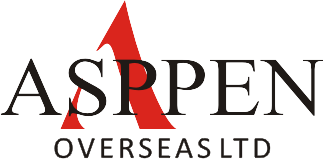Introduction
Ireland, known for its stunning landscapes, rich literary heritage, and warm hospitality, has emerged as a popular destination for international students seeking high-quality education and cultural experiences. With its world-class universities, innovative research opportunities, and vibrant cities, Ireland offers an attractive destination for students from around the world.
Why Study in Ireland?
- Quality Education: Ireland is home to several prestigious universities and colleges known for their academic excellence and research output.
- Innovation Hub: Ireland is a global center for technology, business, and innovation, providing ample opportunities for students to engage in cutting-edge research and entrepreneurship.
- Cultural Experience: Experience Irish culture, music, literature, and festivals while studying in a friendly and welcoming environment.
- English-speaking Country: With English as the primary language, international students can easily integrate into Irish society and communicate effectively.
- Gateway to Europe: Located at the crossroads of Europe, Ireland provides easy access to other European countries for travel and cultural exploration.
Top Universities
- Trinity College Dublin
- University College Dublin (UCD)
- University College Cork (UCC)
- National University of Ireland, Galway (NUIG)
- Dublin City University (DCU)
- University of Limerick (UL)
- Maynooth University
Popular Courses
- Business and Management
- Engineering and Technology
- Medicine and Health Sciences
- Computer Science and Information Technology
- Arts and Humanities
- Environmental Sciences
Education System
Ireland's education system is highly regarded globally and follows the European Higher Education Area (EHEA) framework. Higher education institutions include universities, technological institutes, and colleges. The academic year typically runs from September to June, divided into two semesters.
Application Process and Steps
- Research: Explore universities and programs to find the best fit for your academic and career goals.
- Entry Requirements: Check specific admission requirements for each program, including academic qualifications and language proficiency.
- Application: Submit applications directly to universities or through centralized platforms like the Central Applications Office (CAO) or individual university portals.
- Visa Application: Apply for a student visa (study visa, type D) at the nearest Irish Embassy or Consulate, providing necessary documents including the admission letter, proof of funds, and health insurance.
- Enrollment: Upon acceptance, enroll at the university and register with the Irish Naturalisation and Immigration Service (INIS) upon arrival in Ireland.
Eligibility
- Academic Qualifications: Meet the entry requirements specified by the university or program, including minimum GPA and language proficiency.
- Language Proficiency: Provide evidence of proficiency in English through recognized language tests like IELTS or TOEFL.
- Financial Stability: Demonstrate the ability to cover tuition fees and living expenses for the duration of the studies.
- Health Insurance: Obtain health insurance coverage as required by Irish regulations.
Cost of Studying
- Tuition Fees: Tuition fees vary depending on the institution and program, ranging from EUR 10,000 to EUR 25,000 per year for undergraduate programs. Some programs may have higher fees, particularly in medicine and other specialized fields.
- Living Expenses: Estimated at EUR 7,000 to EUR 12,000 per year, covering accommodation, food, transportation, health insurance, and personal expenses.
Scholarships and Financial Aid
- Government Scholarships: The Irish government offers scholarships for international students, including the Government of Ireland International Education Scholarships.
- University Scholarships: Many universities offer scholarships based on academic merit, nationality, or specific criteria.
- External Scholarships: Various organizations and foundations provide scholarships for international students studying in Ireland.
Work Opportunities
- Part-time Work: International students are allowed to work part-time (up to 20 hours per week) during term time and full-time during holidays.
- Internships: Many programs incorporate internships or work placements, providing valuable professional experience.
Post-Study Work Visa
- Stay-back Option: Graduates may apply for a stay-back option (Stamp 1G) allowing them to stay and work in Ireland for up to two years after completing their studies.
Visa Requirements
- Student Visa (Study Visa, Type D): Required for non-EU/EEA students intending to study in Ireland for more than 90 days. Required documents include the admission letter, proof of funds, health insurance, and a valid passport.
Health and Safety
- Healthcare: Ireland has a comprehensive healthcare system, and students are usually required to have health insurance coverage.
- Safety: Ireland is considered a safe country with low crime rates and a welcoming environment for international students.
Living Expenses
- General Living Costs: Estimated at EUR 7,000 to EUR 12,000 per year, covering accommodation, food, transportation, health insurance, and personal expenses.
Accommodation Costs
- University Accommodation: Rents for university-owned accommodation range from EUR 4,000 to EUR 8,000 per year, depending on the location and facilities.
- Private Accommodation: Renting an apartment or shared flat can range from EUR 400 to EUR 1,000 per month, depending on location and amenities.
Tips for a Successful Experience
- Plan Ahead: Start the application process early to meet deadlines and gather necessary documents.
- Adapt to the Culture: Embrace Irish culture, customs, and traditions to fully immerse yourself in the experience.
- Network: Build connections with classmates, professors, and professionals in your field to enhance your academic and career prospects.
- Explore the Country: Take advantage of weekends and holidays to explore Ireland's natural beauty, historical sites, and cultural attractions.
- Seek Support: Utilize student services, counseling, and support networks available at universities to address any challenges and make the most of your experience abroad.
Studying in Ireland offers a unique opportunity to receive a high-quality education, experience vibrant culture and traditions, and build a rewarding academic and personal journey in one of Europe's most welcoming countries.


